Hey, let me introduce you!
Co-teaching
The interdisciplinary focus of the international master’s degree program requires the cooperation of more than one discipline in delivering the contents of the curriculum. The program uses the co-teaching method for most of its seminars. These are held as block seminars with at least two experts from different disciplines developing and jointly delivering the content of the seminar, setting assignments and providing study materials. Additionally, students receive support through the online-platform of the master’s degree program.
LECTURERS
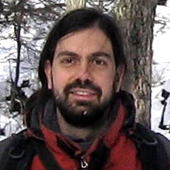
Biography
José Ignacio Alvarez Hamelin has a Ph.D. in Informatics. He is Head of the Complex Networks and Data Communications Group, Department of Electronics, Facultad de Ingeniería (School of Engineering) Universidad Nacional de Buenos Aires.
Research fields: Networks, complex systems and social networks
Dr. José Ignacio Alvarez-Hamelin
Universidad de Buenos Aires
Computer Sciences, Engineering
E-Mail: ihameli@cnet.fi.uba.ar
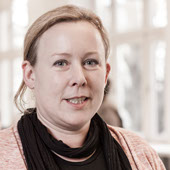
Biography
Carola Becker studied at the Goethe-Universität Frankfurt am Main. In 2010 she received her doctoral degree at the Marine Zoology Department of the Forschungsinstitut Senckenberg (Senckenberg Research Institute ) investigating the taxonomy, reproductive morphology and host-relations of parasitic pea crabs (Brachyura: Pinnotheridae). Until 2012 she worked as a researcher in several institutions, including the Forschungsinstitut Senckenberg in Frankfurt am Main and the Deutsche Zentrum für Marine Biodiversitätsforschung (DZMB) (German Center for Marine Biodiversity Research) in Wilhelmshaven.
Research fields: Crustacean morphology, reproductive biology, systematic, marine biology and deep oceans
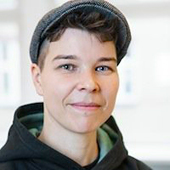
Biography
Julia Blumenthal sJulia Blumenthal is an interaction designer. She was recently awarded a diploma in Product Design by the Kunsthochschule Berlin Weißensee (the Weissensee Academy of Art, Berlin). Before that, she served an apprenticeship as a cabinetmaker. She manages the material and model making workshop of the Interdisciplinary Laboratory.
Research fields: Architecture of knowledge
Dipl.-Des. Julia Blumenthal
Humboldt-Universität zu Berlin
Interaction Design
E-Mail: julia.blumenthal@hu-berlin.de
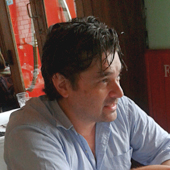
Biography
PhD in Architecture, Inter Semiotic Translations. UBA, University of Buenos Aires.
Full Professor FADU. UBA.
Full Professor UTDT. Universidad di Tella. Argentina.
Visiting Professor DIA Dessau Institute of Architecture, Germany.
Visiting Professor SOA. UF. University of Florida, USA.
Carlos Campos has also developed his work in the private sector as a founder and partner of ccyza archs. (Carlos Campos Yamila Zynda Architects) since 1994, developing practice skills in several sectors, in a number of projects including local and international Architecture Competitions awards.
In the academic field, Carlos Campos taught seminars, lectures and courses at several universities in Italy (IUAV Venezia, SUN Napoli, Federico II Napoli, UniRC, VIA) in USA, (University of Florida), Germany (DIA, HU), France (St. Etienne) and Russia (Marchi, Moscow)
Curator and Designer of Argentinian Pavilion at XI Biennale di Architettura di Venezia, Italia. Sound Images. 2008.
Author of books: “Before the Idea” 2007 and “The Architectural Performance“ 2011.
Curator and Designer of site Museum at ESMA, Buenos Aires, Argentina, 2015.
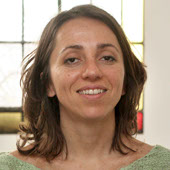
Biography
Verónica Devalle is a sociologist with a Magister in Cultural Sociology and Cultural Analysis and a Doctorate in Arts. She is Adjunct Professor of Communication I and Professor of Design and Cultural Studies at the Graphic Design Master’s course of the Facultad de Arquitectura, Diseño y Urbanismo (School of Architecture, Design and Urbanism) of the Universidad de Buenos Aires. At the same university, she is one of the coordinators of the Master’s program in Communication Design (DICOM), where she is also a professor. She is a CONICET researcher (the National Scientific and Technical Research Council in Argentina).
Research fields: Design, art and contemporary visual culture
Dr. Verónica Devalle
Universidad de Buenos Aires
Sociology, Design
E-Mail:
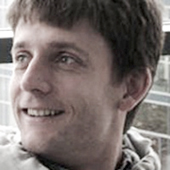
Biography
A chemist and material scientist, John Dunlop has been Head of the research group at the Department of Biomaterials at the Max Planck Institute for Colloids and Interfaces since 2008.
Research fields: Mechanics of actuating systems: modeling mechanics of actuating plant systems; designing novel materials-actuation systems.
Modeling of tissue growth: interaction between mechanics and cell action in trabecular bone; effects of geometry on tissue growth.
Mechanics of cellular materials: stability of porous solids; effect of underlying architecture on deformation localization.
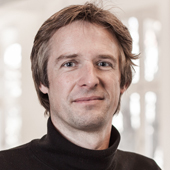
Biography
Michael Dürfeld studied Architecture and Urban Planning in Hamburg and Berlin. He earned his doctoral degree from the Technische Universität (TU) Berlin at the Department of Architectural Theory. His thesis »The Ornamental and the Architectural Form. System-theoretical Irritations« was published in 2008 by the publishing house »transcript«. He is Associate Researcher at the „Innovationszentrum Wissensforschung“ (IZW) (Center for Knowledge Research) at the TU Berlin, a founding member of the »Netzwerk Architekturwissenschaft e.V.« (Network for Architectural Science) and was a practicing architect and research fellow in Santiago de Chile. Michael Dürfeld started his own business with an »Office for Architectural Theory Services« in Berlin; he has also worked as a researcher for the Humboldt-Universität zu Berlin (HU) and the Max-Planck-Institut and as a lecturer and visiting professor for the TU and the HU Berlin.
Dr. Michael Dürfeld
Humboldt-Universität zu Berlin
Architecture
E-Mail: michael.duerfeld@hu-berlin.de
Biography
Or Ettlinger is a theorist, practitioner and educator working at the intersection of the fields of architecture, computer science, art and digital media. He is an Assistant Professor at the Faculty of Architecture of the University of Ljubljana, where he developed and teaches courses in digital literacy, virtual architecture and creative methodologies. He developed the Virtual Space Theory, an alternative theory of the pictorial image which considers images in terms of the experience of space that they create and provide, and published the book The Architecture of Virtual Space,which explores the space that images generate by studying the history of architectural creations made especially for pictorial mediums. He established and leads the Creativity Studio for Experimental Projects, an advanced educational framework for fostering creativity, interdisciplinarity, teamwork and innovation through collaborative work on large-scale mind-bending projects.
Research fields: The experience of space in and through pictorial images (How does it happen?), Architectural creations in and for pictorial mediums (from the distant past to speculated futures), The aesthetic experience in art and architecture (What makes us inspired?), The process of artistic creativity and inspired perception (How does it work?), Multi-dimensional data visualizations, user interfaces and information design (How to make the abstract tangible?)
Prof. Dr. Or Ettlinger
Humboldt-Universität zu Berlin
Architecture, Computer Science, Art and Digital Media
E-Mail: or.ettlinger@hu-berlin.de
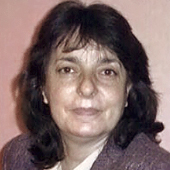
Biography
Beatriz Galán studied Industrial Design at the Universidad Nacional de La Plata (UNLP), Argentina, specializing in Technology and Production (in FADU, UBA). She is a researcher at the Facultad de Arquitectura, Diseño y Urbanismo (School of Architecture, Design and Urbanism) at the Universidad de Buenos Aires. She is assessor of the Committee of University Evaluation and Accreditation and an external assessor of the National University Art Institute. In 1995 she qualified as a professor. She has taught Methodology in the Industrial Design Career, Theory and Practice of Design, and Graphic Design. Since 2000 she has worked on the unification program of the departments of Universidad de Buenos Aires. She has been a research director in various projects and has been a visiting professor in several European and Latin American universities. In 2011, she received the Ernesto Tomás Cresti Award for her contribution to sustainable development in Latin American societies. She is part of the Committee for Coordination of the Center for Industrial Design in the Ministry of Science, Technology and Productive Innovation (Mincyt).
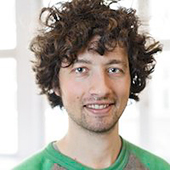
Biography
Lorenzo Guiducci studied biomedicine in the field of engineering at the Politecnico di Milano and graduated with a thesis on the biomechanics of the aortic arch. Following this, he worked in the department of biomaterials at the Max Planck Institute of Colloids and Interfaces and conducted research into the passive movements of plants, with a dissertation on the actuation of cellular tissue under internal pressure.
As part of the group Structural Science and 3D codes, he is interested in the potential of folding as a mechanism for creating the three-dimensional from the one-dimensional. One example of this is the art of origami. This ancient technique requires precision folding in order to achieve the desired 3D object. Another example is the way in which plant leaves acquire a wavy form. A newly emerged flat leaf waves, bends and folds away from the flat to resolve incompatible growth strains that arise during development. In this case, a simple 2D pattern – the distribution of growth strain in the flat leaf – is responsible for the formation of the 3D shape. The potential for autonomous 3D formation – without the need for an agent – is Lorenzo Guiducci's main interest. The question arises as to a possible consistency between various 2D patterns and three-dimensional forms: is this a simple relationship? Is there a code, which, like an experienced practitioner of origami, deciphers (any?) 3D form from a 2D pattern? In attempting to find an answer to these questions, he uses numerical simulation to observe the unfolding of a flat latticework during various growth scenarios. Together with other members of the group, he will attempt to bring together scientific aspects with the concept of structure and its generation (through folding, for example) in philosophy and cultural science, in the context of which they appeared centuries ago (but have since departed from their scientific counterparts).
Research fields: Active Matter, Science of Structures and 3-D Code
Dr. Lorenzo Guiducci
Humboldt-Universität zu Berlin
Biomedicine
E-Mail: Lorenzo.Guiducci@mpikg.mpg.de
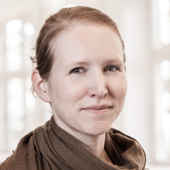
Biography
In 2012, Anouk-Aimée Hoffmeister finished her studies in Product Design at the Kunsthochschule Berlin Weißensee (the Weissensee Academy of Art, Berlin), majoring in Interaction Design. In 2004 she earned a degree in Social Sciences from the University of Mannheim. Her thesis investigated design processes of physical computing located at the interface between the virtual and the real world. Taking the design problems that arise from the documentation and organization of relevant information as her starting point, Anouk Hoffmeister conceptualized a multipurpose digital platform which can be adapted to the specificities of physical computing that facilitate the organization of gathered information. The platform aims to map the entire working process and make the final project accessible to others.
Des. Anouk-Aimée Hoffmeister
Humboldt-Universität zu Berlin
Design, Social Sciences
E-Mail: anouk.hoffmeister@hu-berlin.de
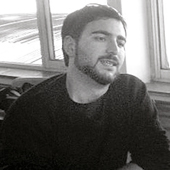
Biography
Rodrigo Martin Iglesias is the coordinator of the Master’s degree program Open Design in Argentina. He is an architect, Ph.D. Fellow (UBACYT) and Associate Professor of History of Architecture. He is also Head of practical assignments for Theory of Architecture and Professor of Introduction to Contemporary Architecture. Rodrigo Martin Iglesias is a member of the Ibero-American Society of Digital Graphics, the Argentinian Society of Morphologic Studies and the International Association of Visual Semiotics. He is also the coordinator of the Walter Gropius-Program (PWG-FADU).
Research fields: Epistemology of design and project theory
Arq. Rodrigo Martin Iglesias
Universidad de Buenos Aires
Coordinator master´s degree program
Architecture
E-Mail: rodrigo.martin@fadu.uba.ar
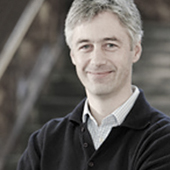
Biography
Christian Kassung has been Professor of Cultural Techniques and History of Knowledge at the Humboldt-Universität zu Berlin since 2006. After reading German Studies and Physics, he received a doctoral degree from the University of Cologne with a dissertation on Robert Musil’s »Der Mann ohne Eigenschaften« in the discourse of modern physics. In 2007 he completed a professorial dissertation at the Humboldt-Universität zu Berlin on the pendulum and its meaning for the History of Knowledge. He is a member of the Hermann von Helmholtz-Zentrum für Kulturtechnik (Hermann von Helmholtz Center for the Study of Cultural Competencies). From 2007 to 2010 he was Dean of Studies at the Philosophische Fakultät III (School of Philosophy) of the Humbolt-Universität zu Berlin, and in 2009 he became a member of the task force Excellence Initiative.
Research fields: History of knowledge and cultural history of the natural sciences, mainly physics; history and epistemology of accidents; cultural techniques of synchronization; history and praxis of technical media, mainly transmission of images (copying telegraphs)
Prof. Dr. Christian Kassung
Humboldt-Universität zu Berlin
Cultural Sciences, Physics
E-Mail: ckassung@culture.hu-berlin.de
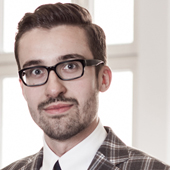
Biography
Peter Koval is a culture and media researcher. Within the base projects »Experiment & Observation« and »Virtual & Real Architecture« he investigates the meaning of the concept and predictability of organizational models, as well as the role of these models for organizational understanding. Peter Koval completed his Ph.D. under the supervision of Friedrich Kittler and Wolfgang Schäffner with a work on the genealogy and evidence of Moore´s Law. Previously he was a DFG Fellow at the research training group "Coding of Power within Media Changes"; he also worked as researcher in Public Management and E-Government in Bern.
Dr. Peter Koval
Humboldt-Universität zu Berlin
Culture and Media Studies
E-Mail: peter.koval@hu-berlin.de
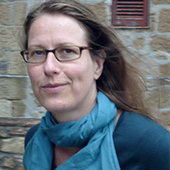
Biography
Karin Krauthausen is a literature and cultural scientist. She earned her doctoral degree in 2008 with a thesis on drawing and seeing in the work of Paul Valéry. From 2007 to 2011 she was a Fellow at the Max Planck Institute for the History of Science. Until October 2013 she worked as the coordinator of the bi-national doctoral program PhD-Net Das Wissen der Literatur at the Humboldt-Universität zu Berlin.
Research fields: Design methods of artists and scientists, realism of the 19th and 20th century, poetry by Hans Blumenberg and Paul Valéry
Dr. Karin Krauthausen
Humboldt-Universität zu Berlin
Literature, Cultural Sciences
E-Mail: karin.krauthausen@hu-berlin.de
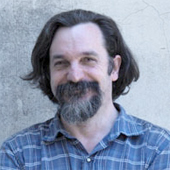
Biography
Prof. Arq. Enrique Longinotti is an architect and teaches Morphology and Typography and Theory of Communication Design (diCom) at the Facultad de Arquitectura, Diseño y Urbanismo (School of Architecture, Design and Urbanism) of the Universidad de Buenos Aires. He has directed several degree courses and has served on several university committees. He is a collaborator on and writes for several magazines and is co-author of »La biblioteca Imaginaria« (The imaginary library). He has led seminars and workshops in Austria, Spain and Ecuador and organized several exhibitions.
Prof. Arq. Enrique Longinotti
Universidad de Buenos Aires
Architecture, Design
E-Mail:
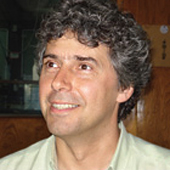
Biography
Since 2000, Ernesto Marceca has been Professor at the Facultad de Ciencias Exactas y Naturales, FCEN (School of Sciences) Universidad de Buenos Aires, and since 1998 a CONICET researcher (National Scientific and Technical Research Council in Argentina) on Molecular Beams. He has a Ph.D. in Chemistry from the Universidad de Buenos Aires and a post-doctoral qualification in Cluster Physics from the Philipps Universität Marburg, Germany.
Research fields: Electrical properties and spectroscopy of isolated molecular clusters and nanodroplets. Solvation and chemical reactivity in clusters and in supercritical fluids.
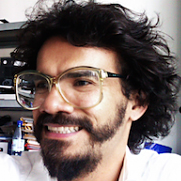
Biography
Ricardo Cedeño Montaña, born in Bogotá, Colombia in 1976. He studied Industry Design (1999) and Multimedia Creation (2003) in Colombia, and received a Master of Sciences degree in Digital Media (2009) from the Hochschule Bremerhaven. He is currently a doctoral student at the Department of Cultural History and Theory of the Humboldt-Universität zu Berlin. His research project focuses on the media history of storage formats for films as well as for both analogue and digital video. Ricardo is also a professional video artist. His works have been exhibited in Colombia, Argentina, and Germany.
Research fields: Media technology, moving images, Do-It-Yourself
MSc Ricardo Cedeño Montaña
Humboldt-Universität zu Berlin
Cultural History and Theory
E-Mail: cemontar@hu-berlin.de
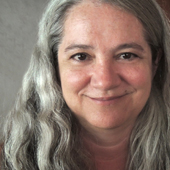
Biography
Patricia Muñoz has a Ph.D. in Industrial Design and is Professor of Morphology at the UBA. Since September 2009 she has also served as President of SEMA, the Argentinian Society of Morphologic Studies.
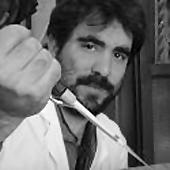
Biography
Research fields: Hemoproteins, Protein-DNA interactions, Zinc Fingers, Protein modeling, Protein design, Proteinphysiology, Evolution, Synthetic Biology, Structure-function and relationship in molecules.
Dr. Alejandro Nadra
Universidad de Buenos Aires | Laboratorio de Bioquímica Estructural
Bio-Chemistry
E-Mail: anadra@qi.fcen.uba.ar
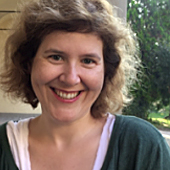
Biography
Dawn Nichols is a specialist in intercultural competence and has taught academic and research writing courses for graduates as well as post-graduates at Humboldt-Universität zu Berlin, Kassel University, and Fraunhofer Institute for Secure Information Technology. She is a certified European Language Center trainer and examiner for Intercultural Competence in English. Prior to her work at Humboldt-Universität zu Berlin, she was the English Coordinator for International Business, Mechanical Engineering, and Mechatronics at Frankfurt University of Applied Sciences.
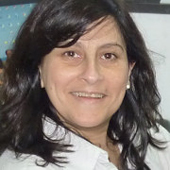
Biography
Adalí Pecci studied Chemistry and has a post-doctoral qualification from the Philipps Universität Marburg, Germany. She is Professor at the Facultad de Ciencias Exactas y Naturales, FCEN (School of Sciences) Universidad de Buenos Aires, and is also a researcher at CONICET (National Scientific and Technical Research Council in Argentina).
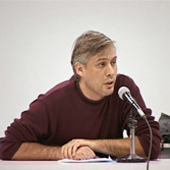
Biography
Homero Pellicer is an architect and Professor of Systems of Geometric Representation at the UBA. He is also a specialist in urban projects and coordinator of the area Morphology and Communication as well as of the Centre for Heuristics at the UBA. He was director of the project »Tejidos Urbanos. Entre lo formal y lo informal. Un lugar a proyectar« (Urban weavings. Between the formal and the informal. A place to project). Homero Pellicer is a founder member of SEMA, the Argentine Society of Morphologic Studies.
Arq. Homero Pellicer
Universidad de Buenos Aires
Architecture
E-Mail:
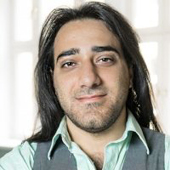
Biography
Khashayar Razghandi received a B.Sc. degree in Material Science and Engineering from Sharif University of Technology, Tehran with a main focus on metals. During his M.Sc. studies at Martin Luther University Halle-Wittenberg his research interest moved onto polymeric materials and finally biomaterials during his Ph.D. studies in a collaborative biomimetic project between the bio-material department of Max-Planck-Institute of Colloids and Interfaces, TU Berlin and the Institute for Building Materials at ETH Zurich.
Dr. Khashayar Razghandi has commenced post-doctoral work on the project »Self-Moving Materials« in a collaboration between Humboldt-Universität zu Berlin (Dr Thomas Stach, Professor Dr Gerhard Scholtz) and the biomaterial department of the Max Planck Institute of Colloids and Interfaces (Dr John Dunlop, Professor Dr Peter Fratzl), with the main goal of investigating the structure and function of the filtering house of free-swimming tunicate, Appendicularia Oikopleuridae.
Research fields: Self-moving materials, Active Matter
Dr. Inf Khashayar Razghandi
Humboldt-Universität zu Berlin
Material Science
E-Mail: khashayar.razghandi@mpikg.mpg.de
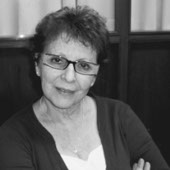
Biography
Professor Dr. Marta Rosen is a full member of the Argentinian National Academy of Physical and Natural Sciences and Emeritus Professor at the Universidad de Buenos Aires. She has taught Physics to undergraduate and graduate students at the Facultad de Ingeniería (School of Engineering) of the Universidad de Buenos Aires. Until 2009, she headed a Laboratory of Experimental Research on Porous Media at that school. She is a member of the CONICET National Scientific and Technological Research Council in Argentina. In 2011 she received the Rebecca Gershman Prize for Distinguished Engineering Research, conferred by the Argentinian Ministry of Science, Technology and Productive Innovation.
Research fields: Flow in random structures, complex fluids, unstable systems, hydrodynamic instabilities
Prof. Dr. Marta Rosen
Universidad de Buenos Aires
Physics
E-Mail:
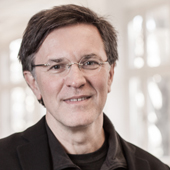
Biography
Wolfgang Schäffner is the director of the master´s degree program Open Design. Historian of science and media technologies he has been Professor of History of Culture and Knowledge at the Humboldt-Universität zu Berlin since 2009. He is a member of the Executive Board of the »Hermann von Helmholtz-Zentrum für Kulturtechnik« (Hermann von Helmholtz Center for the Study of Cultural Competencies). Since 2005 he has been Permanent Guest Professor and Director of the Walter Gropius Program at the Facultad de Arquitectura, Diseño y Urbanismo (School of Architecture, Design and Urbanism) at the Universidad de Buenos Aires. Additionally, he is a member of the Academic Committee of the Master’s Program “Ciencia, Cultura y Tecnología” at the Universidad Autónoma de Madrid and of the Master’s Program “Diseño comunicacional” at the University of Buenos Aires.
Research fields: History and theory of structures and geometric operations, architecture of knowledge, interdisciplinary design of knowledge, material epistemology, transatlantic knowledge transfer (Europe-Ibero-America).
Prof. Dr. Wolfgang Schäffner
Humboldt-Universität zu Berlin
Director master’s degree program
History of Science and Technology, Cultural Sciences
E-Mail: schaeffner@culture.hu-berlin.de
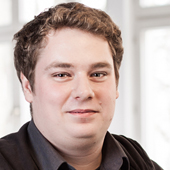
Biography
Friedrich Schmidgall earned his design degree with an honorable mention in 2011. Under the title »Digital craft tools«, he investigated processes of the digitalization of handcraft and the problems involved in digital conceptual design. At the Excellence Cluster, he develops innovative modes of interaction with computer-based systems.
Teaching: From 2012 to 2014 he was a guest critic and workshop tutor in Interaction-Design and User Experience projects at the Weißensee Kunsthochschule (the Weissensee Academy of Art, Berlin), in the department of Product Design.
Des. Friedrich Schmidgall
Humboldt-Universität zu Berlin
Design
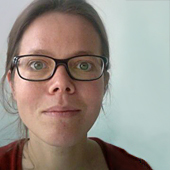
Biography
Christine Schnaithmann majored in Cultural History and Theory and Computer Science. She received her M.A. at the Humboldt-Universität zu Berlin in 2007. In 2008, she earned a certificate in Design Thinking at the Hasso Plattner Institute's School of Design Thinking in Potsdam, where she later worked as a lecturer and team coach. Currently, she is working as a research scholar and lecturer at the Department for Cultural History and Theory at Humboldt-Universität zu Berlin. She is about to complete her Ph.D. on the architecture of Frank Lloyd Wright's Larkin Administration Building.
Christine Schnaithmann
Humboldt-Universität zu Berlin
Cultural History and Theory, Computer Sciences
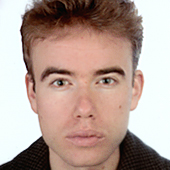
Biography
Fabian Scholtz studied Architecture at the University of the Arts, Berlin. Alongside his studies, he worked at the architectural offices of Riegler Riewe Berlin and as a research assistant for Prof Benedict Tonon. For his dissertation, he developed an experimental set-up for tackling large-scale tracts of urban derelict land. At the Cluster of Excellence, Fabian Scholtz attempts to ascertain modes of operation of models in drafting processes. This includes an investigation into the ways in which models inform processes between appraisal and realisation.
Research fields: Process of Form and Modeling
Dipl.-Ing. Fabian Scholtz
Humboldt-Universität zu Berlin
Architecture
E-Mail: fabian.scholtz@hu-berlin.de
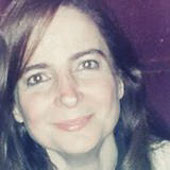
Biography
Anabella Speziale is an Audiovisual Designer at the Universidad de Buenos Aires, and has a M.A. in Media and Communications from Goldsmiths College, University of London. She is currently writing a thesis for the Ph.D. in Design at the UBA. Her fields of study are audiovisual poetics and media experimentation. She has headed a research group for understanding cross-media audiences at the Universidad de San Martín since May of 2014. Anabella Speziale has been Professor of Media Theory and Aesthetics and of Sociology for the Audiovisual Design program at the UBA. She teaches at the Universidad de San Martín on the subjects of Audiovisual Design, Interactive Media II, and Methodological Techniques for Researching Media Audiences. She is Professor for the M.A. program in Science, Technology and Innovation at Universidad Nacional de Rio Negro
Research fields: Audiovisual media: aesthetics and experimentation. Uses of the audiovisual image. audiovisual design poetics: video art and expanded audiovisual art.
Media Audiences: convergence and trans-media
M.A. Anabella Speziale
Universidad de Buenos Aires
Design, Communication
E-Mail:
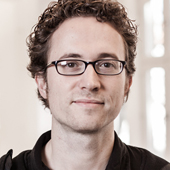
Biography
Christian Stein studied Literature, Linguistics and Computer Science, specializing in the philosophy of language at the Technische Universität Braunschweig. As a freelance software engineer, he developed data processing and database software applications for private companies. Subsequently he founded and directed the project »iglos« (acronym for ‘intelligent glossary’) and received his doctoral degree in this connection. As a member of the Excellence Cluster, Christian Stein will design and implement a RDF-based research infrastructure for all the base projects, which will focus on exploring, collecting and modeling data relating to the interdisciplinary processes taking place within the Excellence Cluster. The aim of the research is to detect productive and obtrusive factors within interdisciplinary joint research in order to optimize them.
Research fields: Knowledge and information management, semantic web and semiotics
Christian Stein
Humboldt-Universität zu Berlin
Literature, Linguistics, Computer Sciences
E-Mail: christian.stein@hu-berlin.de